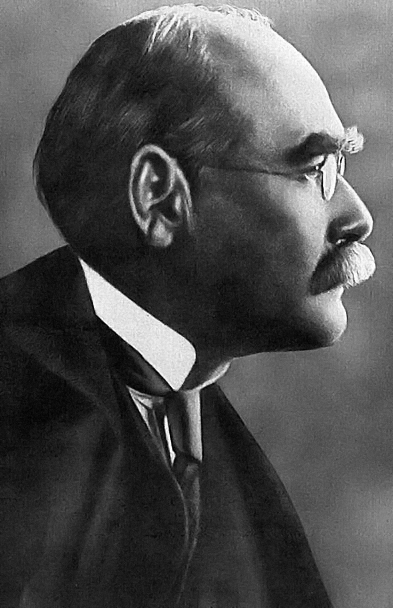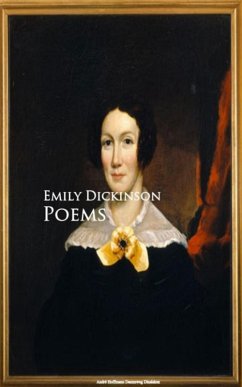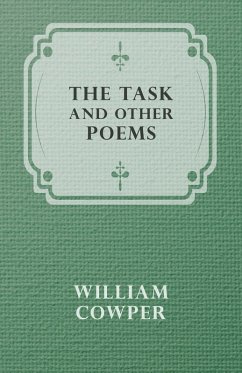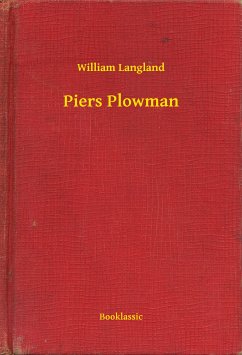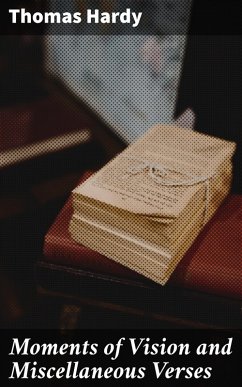
Departmental Ditties and Barrack Room Ballads (eBook, ePUB)
Enriched edition. Echoes of Empire: Satirical Poems of Colonial Life
Kommentar: Everly, Desmond / Redaktion: Good Press
Versandkostenfrei!
Sofort per Download lieferbar
1,99 €
inkl. MwSt.
Weitere Ausgaben:

PAYBACK Punkte
0 °P sammeln!
In "Departmental Ditties and Barrack Room Ballads," Rudyard Kipling offers a captivating exploration of the military life in British India during the late 19th century. This collection intertwines humor and pathos through verse, showcasing Kipling's gift for vivid imagery and rhythmic versatility. The juxtaposition of the banalities and tragedies of war creates a rich tapestry that reflects the socio-political context of the British Empire. Employing colloquial language and ballad forms, Kipling immerses the reader in the voices of soldiers and bureaucrats, making poignant observations about d...
In "Departmental Ditties and Barrack Room Ballads," Rudyard Kipling offers a captivating exploration of the military life in British India during the late 19th century. This collection intertwines humor and pathos through verse, showcasing Kipling's gift for vivid imagery and rhythmic versatility. The juxtaposition of the banalities and tragedies of war creates a rich tapestry that reflects the socio-political context of the British Empire. Employing colloquial language and ballad forms, Kipling immerses the reader in the voices of soldiers and bureaucrats, making poignant observations about duty, camaraderie, and the absurdities of colonial administration. Kipling, born in India to British parents, grew up in a world straddling the boundaries of British colonial life and Indian culture. His personal experiences informed his worldview, leading him to depict the complexities of imperialism with both pride and critique. Through his keen observation of everyday life, Kipling drew inspiration from the richly textured tapestry of diverse voices, encapsulating the struggles and triumphs of those within the British military framework. "Departmental Ditties and Barrack Room Ballads" is essential reading for those intrigued by colonial literature and military history, providing a nuanced portrait of a time fraught with tension and rich in character. Kipling's masterful use of humor and insight invites readers to engage with the human condition, making this collection both entertaining and thought-provoking. In this enriched edition, we have carefully created added value for your reading experience: - A comprehensive Introduction outlines these selected works' unifying features, themes, or stylistic evolutions. - The Author Biography highlights personal milestones and literary influences that shape the entire body of writing. - A Historical Context section situates the works in their broader era-social currents, cultural trends, and key events that underpin their creation. - A concise Synopsis (Selection) offers an accessible overview of the included texts, helping readers navigate plotlines and main ideas without revealing critical twists. - A unified Analysis examines recurring motifs and stylistic hallmarks across the collection, tying the stories together while spotlighting the different work's strengths. - Reflection questions inspire deeper contemplation of the author's overarching message, inviting readers to draw connections among different texts and relate them to modern contexts. - Lastly, our hand-picked Memorable Quotes distill pivotal lines and turning points, serving as touchstones for the collection's central themes.
Dieser Download kann aus rechtlichen Gründen nur mit Rechnungsadresse in A, B, BG, CY, CZ, D, DK, EW, E, FIN, F, GR, H, IRL, I, LT, L, LR, M, NL, PL, P, R, S, SLO, SK ausgeliefert werden.




